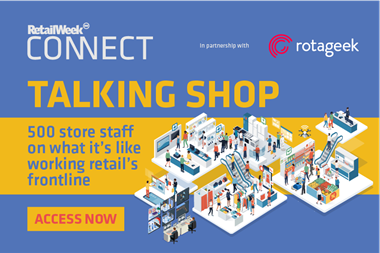With the cost-of-living crisis proving a crunch time for customer returns, Advanced Supply Chain Group’s Ben Balfour examines how firms can navigate this latest challenge smoothly
Retailers were already contending with margin dilution caused by customers sending items back and now, according to new research, they must also tackle a growing trend of false returns.
To better understand the impact of rising living costs on customer returns, retail logistics company Advanced Supply Chain Group (ASCG) recently surveyed 1,000 consumers and 100 retailers.
The research revealed that 48% of consumers are now more likely to send items back to retailers than before the cost-of-living crisis. This is being driven by three key trends:
1. Shopping guilt
During the past six months, 60% of consumers have indulged in retail therapy for light relief from the doom and gloom of financial pressures. When reality bites and they realise they can’t afford their purchases, they send them back. Less than half (47%) of shoppers kept items when the joy of retail therapy faded.
2. False returns
Some 63% of retailers have seen a rise in disingenuous returns during the cost-of-living crisis, while just 15% of shoppers suffering from shopping guilt admitted to returning all their purchases unused or unworn.
3. Trading down
Rising living costs are causing more than half (57%) of consumers to switch to buying cheaper brands and products to save money. This doesn’t always work out for shoppers, with 43% admitting they’ve returned the vast majority of their lower-priced alternatives as the products didn’t always compare with their usual purchases, leading to items being sent back.
These trends have seen growth in returns for almost two thirds of retailers during the cost-of-living crisis, so how can they tackle this returns crunch?
Charging customers to send products back and limiting the availability of flexible payment options are two of the routes being considered by retailers to minimise the impact of returns on margins.
Charges will help cover supply chain costs, while limiting payment choices such as buy now, pay later can encourage greater consideration on which items end up in final baskets and reduce the potential for returns.
These routes aren’t ideal solutions as they can discourage sales.
Make returns channel-specific
Instead, retailers are best placed making returns channel-specific, data-rich and sustainable.
The research, as well as ASCG’s experience of developing returns solutions for a host of leading retailers and consumer brands, suggest these steps will resonate with consumers.
They can help improve supply chain performance and enhance efficiencies to reduce the costs of items being sent back, while delivering savings that enable retailers to offer low- or no-cost returns to customers.
Smart supply chain solutions are embracing returns and recognising this behaviour as an increasingly important part of a shopper’s purchasing journey.
The flow of reliable data throughout supply chains is critical to this and will mitigate the impact of the returns crunch on margins, customer satisfaction and brand loyalty.
To read more about ASCG’s research, download our eBook: How the cost of living crisis is affecting customer returns.

Ben Balfour is chief operating officer at Advanced Supply Chain Group
In his role as COO, Balfour champions ASCG’s tech-led approach to supply chain management strategies and solutions.
Uniquely, the company develops its own supply chain software in house, enabling it to offer bespoke solutions that can meet (and exceed) the specific goals or challenges outlined by customers.
He works closely with customers across the UK and internationally to evolve their supply chain strategies to improve stock inventory management and environmental performance while minimising margin dilution.





























